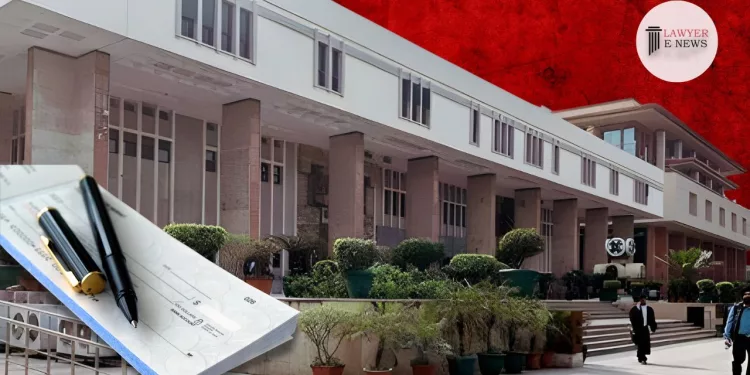Only Drawer of Cheque Can be Made Accused: Delhi HC Quashes Complaint Against Joint Account Holder Not Signing Cheque in Section 138 NI Act Case

In a significant ruling, the Delhi High Court has set aside a criminal complaint against a petitioner in a cheque dishonour case, where she was not the signatory on the cheque. The decision, delivered by Hon’ble Mr. Justice Manoj Kumar Ohri on February 2, 2024, emphasizes the legal principle that only the drawer of a cheque can be implicated in proceedings under Section 138 of the Negotiable Instruments Act.
The case (CRL.M.C. 2067/2023 and CRL.M.A. 7841/2023) involved a complaint filed by Suman Anand against Neeta Gupta, pertaining to the dishonour of a Rs.20,00,000 cheque. Gupta’s primary contention was that the cheque in question was signed by her late husband, and she had not been a signatory to it. Furthermore, she claimed that she did not receive the statutory notice regarding the dishonour, a claim contested by the respondent.
In his judgment, Justice Ohri noted, “The proceedings under Section 138 cannot be used as arm-twisting tactics to recover the amount allegedly due from the appellant… The Court reiterates that it is only the drawer of the cheque who can be made accused in any proceedings under Section 138 of the Act.” This observation resonates with the Supreme Court’s stance in similar cases like Aparna A. Shah v. Sheth Developers Pvt. Ltd. and Alka Khandu Avhad v. Amar Syamprasad Mishra.
The Court underscored that the liability under Section 138 of the NI Act arises from the dishonour of a cheque issued for the discharge of any debt or liability. For initiating prosecution, a prior statutory notice is mandatory. However, in this case, the complaint was deemed an abuse of the legal process since Gupta was not the signatory of the cheque, despite it being drawn from a joint account.
This ruling reiterates the legal position that in cases involving joint accounts, unless each joint account holder has signed the cheque, they cannot be prosecuted under Section 138 of the NI Act. The decision has provided significant clarity on the application of the NI Act in cases of joint account cheques and the limits of liability for non-signatories.
The case was represented by Mr. Mohit Chaudhary for the petitioner and Mr. Sanjay Gupta for the respondent. With this landmark judgment, the Delhi High Court has reinforced the principle of individual liability in cases of cheque dishonour, providing a shield against unjust prosecution of non-signatory joint account holders.
Date of Decision: 02.02.2024
NEETA GUPTA VS SUMAN ANAND






